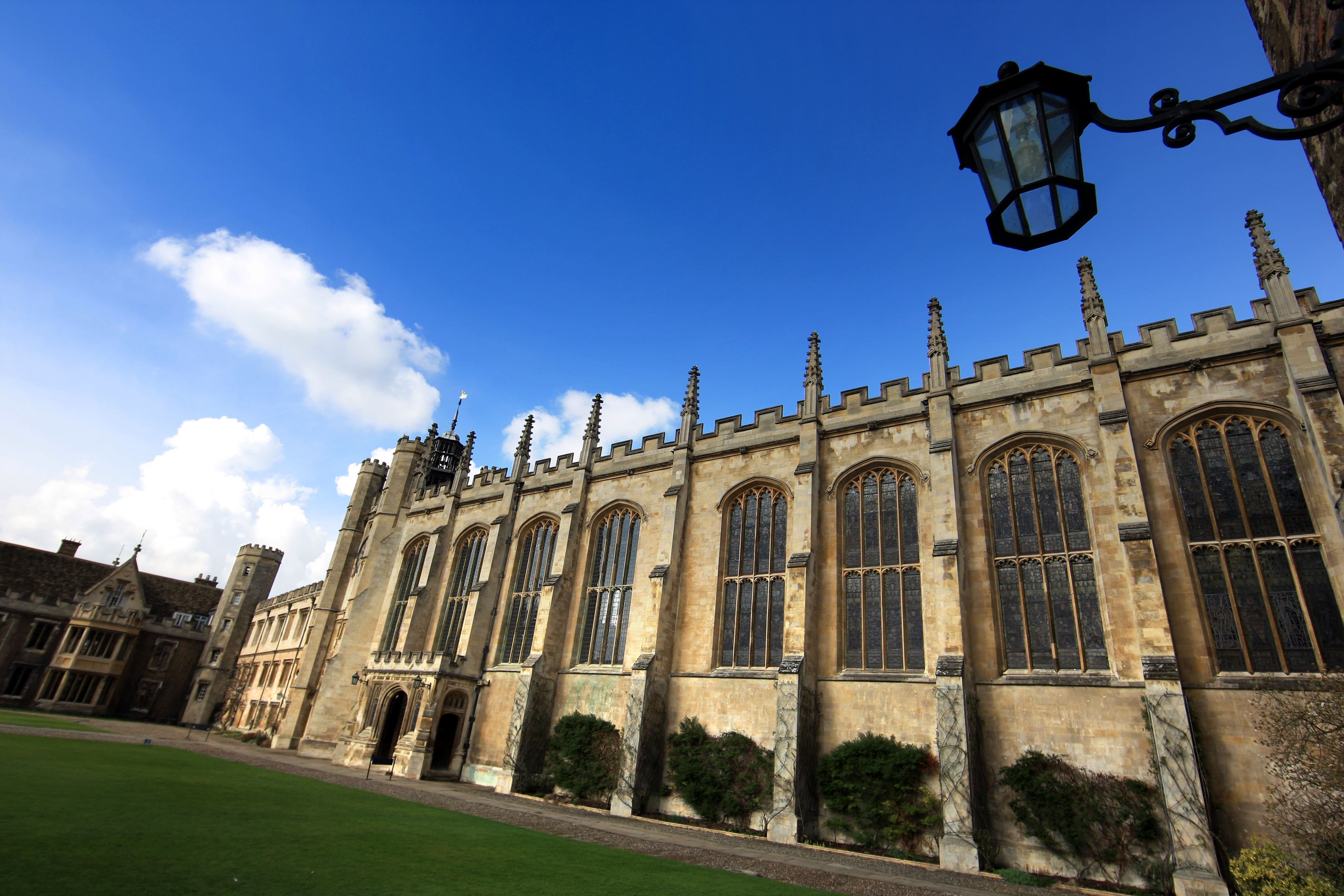Cambridge’s Trinity College to examine its links to slavery
An academic will spend four years researching benefits the college gained.

Your support helps us to tell the story
From reproductive rights to climate change to Big Tech, The Independent is on the ground when the story is developing. Whether it's investigating the financials of Elon Musk's pro-Trump PAC or producing our latest documentary, 'The A Word', which shines a light on the American women fighting for reproductive rights, we know how important it is to parse out the facts from the messaging.
At such a critical moment in US history, we need reporters on the ground. Your donation allows us to keep sending journalists to speak to both sides of the story.
The Independent is trusted by Americans across the entire political spectrum. And unlike many other quality news outlets, we choose not to lock Americans out of our reporting and analysis with paywalls. We believe quality journalism should be available to everyone, paid for by those who can afford it.
Your support makes all the difference.Trinity College Cambridge is recruiting an academic to investigate its links to slavery in a newly created fellowship.
The University of Cambridge college will appoint an academic to the four-year role to consider the ways Trinity may have benefited from slavery through fees or gifts from students, and from college investments.
Beginning in October 2023, the teaching and research fellowship will also explore contributions made by Trinity members who oppose enslavement, and assemble a public lecture series about the consequences and legacies of colonial era enslavement.
Isuri Ratnayake, ethnic and inclusion officer of Trinity’s Graduate Society, praised the college’s commitment to addressing “the college’s legacies of slavery,” and “cultivating a culture of accountability and inclusivity.
She added: “Only by facing our past can we pave the way towards a more equitable future, where all members of our community can thrive free from the shadows of oppression and discrimination.
“I hope that other institutions along with Trinity continue in recognising their historical ties to slavery and taking tangible steps towards repair and reconciliation.”
The new role was created in the wake of the University of Cambridge’s 2019-2022 legacies of slavery Inquiry, which made recommendations for the establishment of a research centre and funding for new partnerships in Africa and the Caribbean.
The Reverend Dr Michael Banner, Dean and Fellow of Trinity said the new role is a “welcome initiative,” and is “essential to enabling us to comprehend the extent to which the College was involved or benefited from slavery.”
Trinity College has also announced a £1 million donation across five years to the Cambridge Caribbean Scholarship fund, and two new PhD studentships that will be available during the five-year initiative.